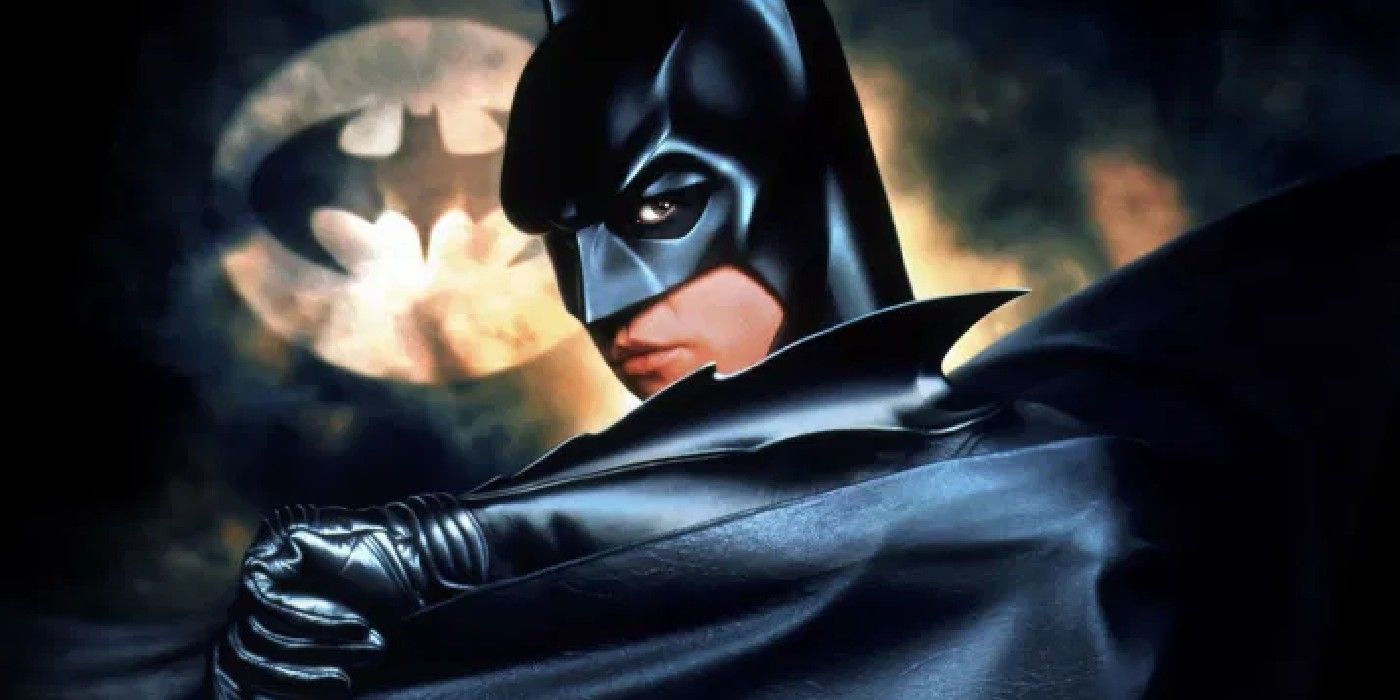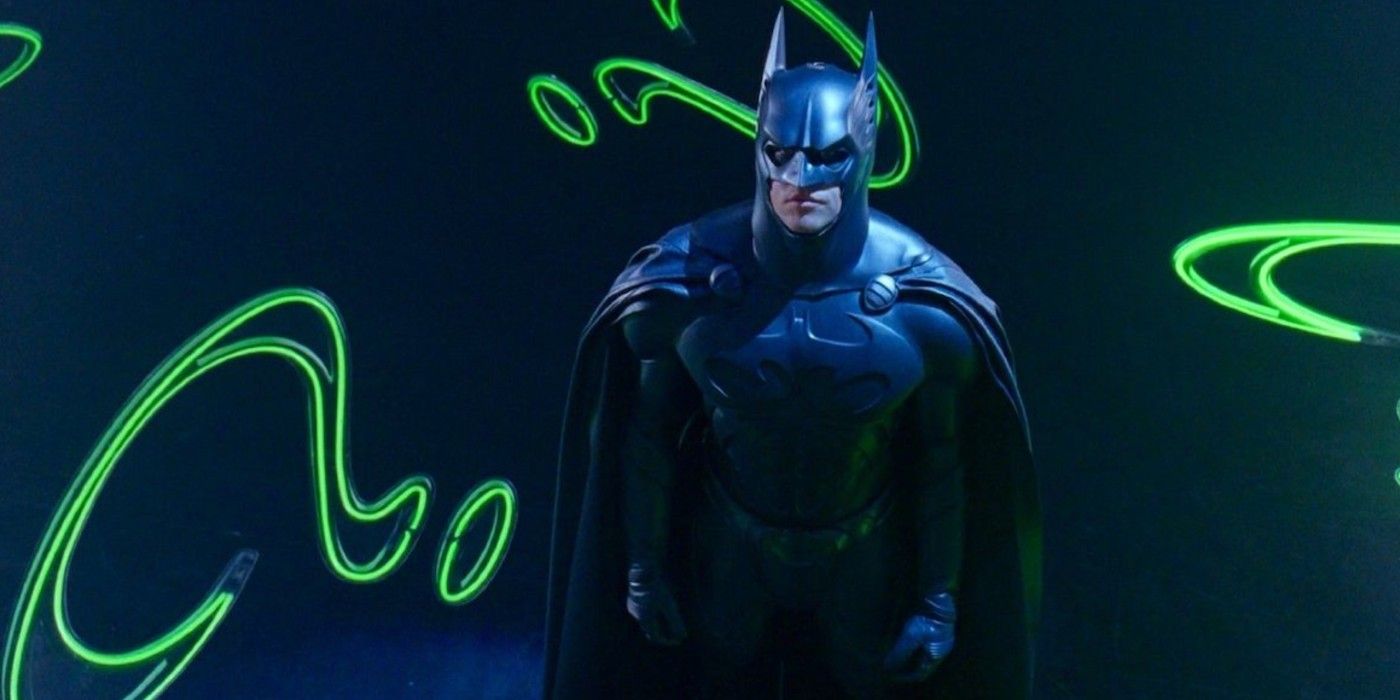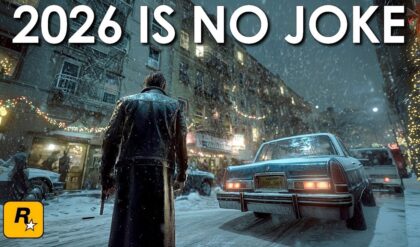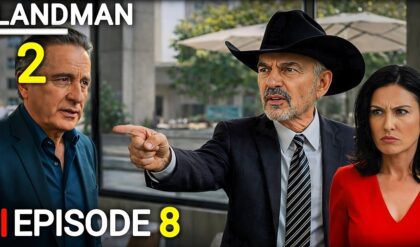Val Kilmer’s turn as the Caped Crusader in Batman Forever (1995) remains a polarizing chapter in the Dark Knight’s cinematic history. Sandwiched between Michael Keaton’s brooding intensity and George Clooney’s infamous bat-nipples, Kilmer’s Batman brought a quieter, more introspective energy to the role. Yet, beneath the cowl, Kilmer was far from thrilled. In interviews, memoirs, and documentaries, he’s been candid about his dislike for playing Batman—a sentiment that surprised fans of the neon-drenched Joel Schumacher film. So, why did one of Hollywood’s most versatile actors chafe at the chance to embody an icon? This article unpacks Kilmer’s frustrations, from the physical toll of the suit to creative clashes and a deeper disconnect with the character, revealing a side of Batman Forever that’s as complex as Gotham itself.

Stepping Into the Batsuit
Kilmer wasn’t the first choice for Batman Forever. Michael Keaton, who defined the role in Tim Burton’s 1989 Batman and 1992’s Batman Returns, walked away after Burton was replaced by Schumacher, whose vision leaned into camp and color. Kilmer, fresh off critical acclaim for Tombstone (1993), was tapped to don the cape. At 35, he was at the peak of his career—charismatic, handsome, and versatile. On paper, it seemed like a perfect fit. The film, released on June 16, 1995, was a box-office hit, grossing over $336 million worldwide, and Kilmer’s restrained performance earned praise for grounding the movie’s over-the-top tone.
But behind the scenes, Kilmer was miserable. In his 2020 memoir, I’m Your Huckleberry, he described the experience as “not my favorite.” The reasons were manifold, starting with the Batsuit itself. Weighing around 90 pounds, the rubber costume was a technological marvel but a physical nightmare. Kilmer likened wearing it to being “trapped in a giant clamshell.” It restricted movement, muffled sound, and left him drenched in sweat after hours of filming. Unlike today’s sleek, flexible suits worn by the likes of Robert Pattinson, the 1995 version was a relic of its time—more about aesthetics than actor comfort. For a Juilliard-trained performer who thrived on physicality, this was a straitjacket on his craft.

Creative Clashes with Joel Schumacher
The suit was just the beginning. Kilmer’s relationship with director Joel Schumacher was another sore point. Schumacher, known for his flamboyant style, wanted Batman Forever to be a spectacle—bright, bold, and family-friendly, a stark contrast to Burton’s gothic gloom. Kilmer, however, had a different vision. He’d prepared for the role by diving into Batman’s psychology, drawing on his theater background to explore Bruce Wayne’s duality: the playboy mask versus the tormented vigilante. He saw potential for a darker, more introspective take, but Schumacher’s focus was on action, gadgets, and Jim Carrey’s manic Riddler.
Tensions flared on set. Kilmer later admitted to being “difficult,” a label Schumacher echoed in interviews. The director once recounted a heated exchange where Kilmer stormed off, frustrated by the lack of depth in his scenes. “Val is a brilliant actor, but he wanted to play Hamlet in a Batman movie,” Schumacher quipped in a 1997 interview. Kilmer, for his part, felt sidelined—his ideas dismissed in favor of the film’s cartoonish tone. The clash wasn’t just artistic; it was personal. Kilmer’s perfectionism clashed with Schumacher’s laissez-faire approach, and by the end of production, the two were barely speaking. When Warner Bros. approached Kilmer for Batman & Robin (1997), he declined, citing scheduling conflicts (he was filming The Saint), though many suspect he’d simply had enough.
The Mask of Anonymity
Beyond the suit and the director, Kilmer’s dislike stemmed from a deeper philosophical issue: playing Batman made him feel invisible. In a now-famous anecdote from I’m Your Huckleberry, he recalled a visit to the set by Warren Buffett’s grandkids. Expecting to impress them as the star, Kilmer was stunned when they ignored him to fawn over the Batmobile. “I realized then that Batman isn’t about the actor—it’s about the suit, the car, the myth,” he wrote. For a performer who’d poured himself into roles like Doc Holliday and Jim Morrison, this was a bitter pill. Batman wasn’t a character he could fully inhabit; it was a symbol, and he was just its temporary vessel.
This sense of detachment was compounded by the film’s ensemble. With Carrey’s Riddler, Tommy Lee Jones’s Two-Face, Nicole Kidman’s Chase Meridian, and Chris O’Donnell’s Robin, Kilmer often felt like a supporting player in his own movie. His screen time was split between stoic brooding and action sequences, leaving little room for the emotional nuance he craved. In Val (2021), a documentary chronicling his life, Kilmer reflected on this with a mix of humor and regret: “I thought I’d be the center of the universe. Turns out I was just a guy in a cape.”
A Role Out of Sync with His Strengths
Kilmer’s career thrived on transformation—whether it was singing like Morrison in The Doors or mastering a Southern drawl for Tombstone. Batman, however, demanded restraint. The mask covered half his face, muting his expressive features, and the script offered few opportunities for the vocal dynamism he’d honed at Juilliard. “I couldn’t use my voice the way I wanted,” he told Entertainment Weekly in 1995. “It’s all whispers and growls.” For an actor who’d built his reputation on bold, immersive performances, this felt like a creative cage.
Compare this to his other 1995 role, Chris Shiherlis in Heat. There, Kilmer got to flex his range—shooting guns, breaking hearts, and sharing quiet moments of vulnerability. Batman Forever offered no such freedom. The film’s campy tone—think neon-lit gargoyles and Riddler’s brain-sucking TV—clashed with Kilmer’s serious approach. He later joked that he spent more time “posing than acting,” a jab at the movie’s reliance on style over substance.
The Aftermath and Legacy
Kilmer’s exit from the franchise paved the way for George Clooney in Batman & Robin, a film so reviled it nearly killed the series. In hindsight, Kilmer’s Batman Forever has aged better than its successor, thanks in part to his understated performance. Fans appreciate how he balanced Schumacher’s excess with a touch of gravitas, especially in scenes like Bruce’s memory of his parents’ murder. Yet Kilmer himself remained unmoved. “It wasn’t my thing,” he said in a 2021 interview, his voice altered by throat cancer but his candor intact.
His dislike didn’t sour him on blockbusters entirely—he’d go on to star in The Saint and Red Planet—but it marked a turning point. Kilmer gravitated toward roles that let him stretch, like The Salton Sea (2002), over franchise fare. His Batman experience also foreshadowed his later struggles with Hollywood’s machine. As he battled health issues in the 2010s, losing his voice to cancer, Kilmer’s reflections on Batman Forever took on new weight. In Val, he mused that the role taught him about “letting go”—a lesson that resonated as he faced life’s bigger challenges.
Why It Matters
So why didn’t Val Kilmer like playing Batman? It wasn’t just the suit, the director, or the script—it was all of it, a perfect storm of discomfort for an actor who thrived on control and connection. For Kilmer, acting was about becoming someone else, not wearing a costume. Batman demanded he be a figurehead, not a flesh-and-blood man, and that chafed against his artistic soul.
Today, as we look back on Kilmer’s career following his passing on April 1, 2025, Batman Forever stands as a curious footnote. It’s not his best work, nor his favorite, but it’s a testament to his professionalism—he delivered despite his disdain. For fans, it’s a bittersweet chapter: a glimpse of what might have been if Kilmer had been given the reins to explore Bruce Wayne’s darkness. For Kilmer, it was a lesson in compromise—one he endured, then left behind. In the end, he wasn’t Batman forever, but his legacy as an actor? That’s eternal.





